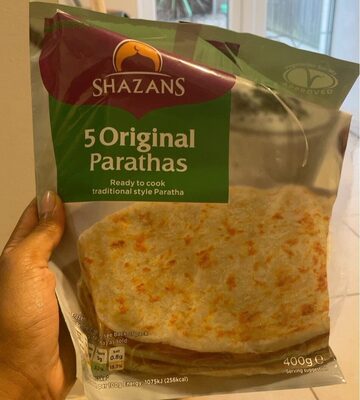Parathas - Shazans - 400 g
This product page is not complete. You can help to complete it by editing it and adding more data from the photos we have, or by taking more photos using the app for Android or iPhone/iPad. Thank you!
×
Barcode: 5060010092414 (EAN / EAN-13)
Quantity: 400 g
Brands: Shazans
Categories: Plant-based foods and beverages, Plant-based foods, Cereals and potatoes, Crêpes and galettes, Breads, Flatbreads, Pancakes
Countries where sold: United Kingdom
Matching with your preferences
Environment
Packaging
Transportation
Threatened species
Report a problem
Data sources
Product added on by kiliweb
Last edit of product page on by chevalstar.
Product page also edited by yuka.sY2b0xO6T85zoF3NwEKvlmBjf-DVnyzJa0LThUuA7emHIbbFSusv-rTCM6s.
If the data is incomplete or incorrect, you can complete or correct it by editing this page.











